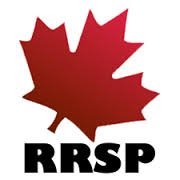 As we near the deadline of March 1 for making your RRSP contributions, I thought it is an appropriate time to give you a “to do” list of financial and investment planning items to review or consider.
As we near the deadline of March 1 for making your RRSP contributions, I thought it is an appropriate time to give you a “to do” list of financial and investment planning items to review or consider.
Nancy Woods is an associate portfolio manager and investment adviser with RBC Dominion Securities Inc.
1. If you are the typical procrastinator when it comes to making an RRSP contribution, consider setting up a monthly payment plan into your RRSP. Making a contribution in the first 60 days of the calendar year allows you the option to choose which taxation year you deduct the amount from your income. There’s nothing that says you have to wait until the following year to make your contribution. This is, of course, dependent on you having earned income and available RRSP contribution room from previous years. The earlier you can contribute to your RRSP the sooner the income and growth will be tax-sheltered. Typically, I have my clients making their contribution early in the year for that year’s income deduction. For example, they contribute in February 2017 to be deducted against 2017’s income. You will have confirmation of the allowable room once you get your 2016 tax assessment notice.
2. Review your Will for its suitability to current family dynamics. Also review the ability and choice of your executors. If you have any changes in your family’s situation, such as birth of new child, divorce, etc., you should consider getting a legal opinion to ensure your wishes are still intact. Make a list of all financial accounts, which institutions they are held at. This should be kept with a copy of your Will for future use by your executor.
 3. Review to ensure you have current and accurate Powers of Attorney for your financial assets and personal care. Down the road, if you are unable to sign your name or make decisions for yourself, you’ll want to be sure that someone capable is able to act on your behalf. Make your appointment with your doctor for your annual check-up. Make a list of your medications and keep a copy in your wallet for easy reference or emergency.
3. Review to ensure you have current and accurate Powers of Attorney for your financial assets and personal care. Down the road, if you are unable to sign your name or make decisions for yourself, you’ll want to be sure that someone capable is able to act on your behalf. Make your appointment with your doctor for your annual check-up. Make a list of your medications and keep a copy in your wallet for easy reference or emergency.
4. Ask your financial adviser for a print-out of the expected cash-flow of your portfolio. It is good to know for the coming year what your expected investment income will be.
5. Check if your investments are being held in accounts that provide appropriate tax-efficiency. For example, I prefer to own U.S.-based company shares that pay a dividend in a retirement account. This avoids the deduction of non-residency withholding tax. This review is best done with a professional adviser.
 6. Make a contribution to your TFSA for 2017 and any past years you have missed. If you haven’t contributed the maximum of $52,000 since the program started in 2009, the unused room is carried forward indefinitely until you do. If you are in a lower tax bracket this year you may want to consider forgoing making RSP contributions and instead saving money in a TFSA. There are no future tax implications with the TFSA, unlike the RRSP/RIF plans that defer tax.
6. Make a contribution to your TFSA for 2017 and any past years you have missed. If you haven’t contributed the maximum of $52,000 since the program started in 2009, the unused room is carried forward indefinitely until you do. If you are in a lower tax bracket this year you may want to consider forgoing making RSP contributions and instead saving money in a TFSA. There are no future tax implications with the TFSA, unlike the RRSP/RIF plans that defer tax.
7. Review the asset mix of your portfolio. There could be dramatic changes due to the recent market turmoil. Don’t be concerned if you have a higher than normal equity exposure. In the low interest rate environment we have had the past several years there may have been a natural progression to buy more stocks than low interest-bearing bonds, GICs and other fixed income products. With the expected inflation rate of 2 per cent, any fixed-income investment that doesn’t yield at least the same or more than inflation effectively reduce the buying power of your dollar and shrink your capital.
8. Finally, if you have any outstanding higher interest debts, such as credit card or car loans, devise a plan to increase the payments to eliminate this debt. Pay attention to the notes on your statement indicating how long it would take to pay off the debt if you only paid the minimum.
As always make sure you take the advice of a qualified financial advisor that knows the rules and can give you good advice.
